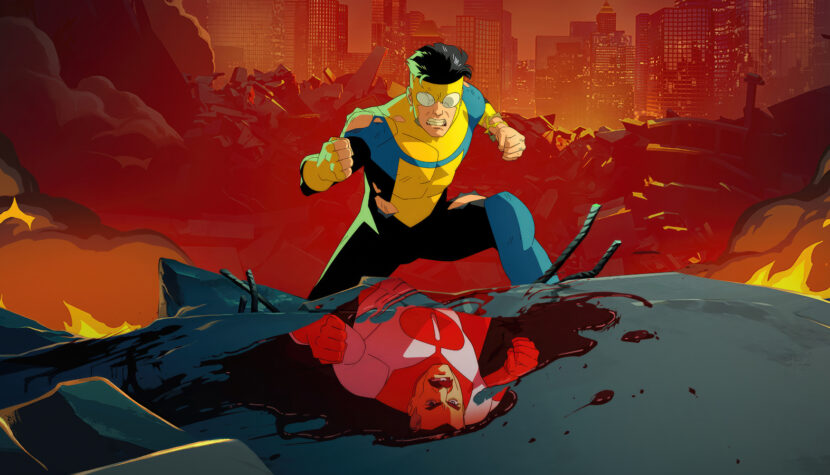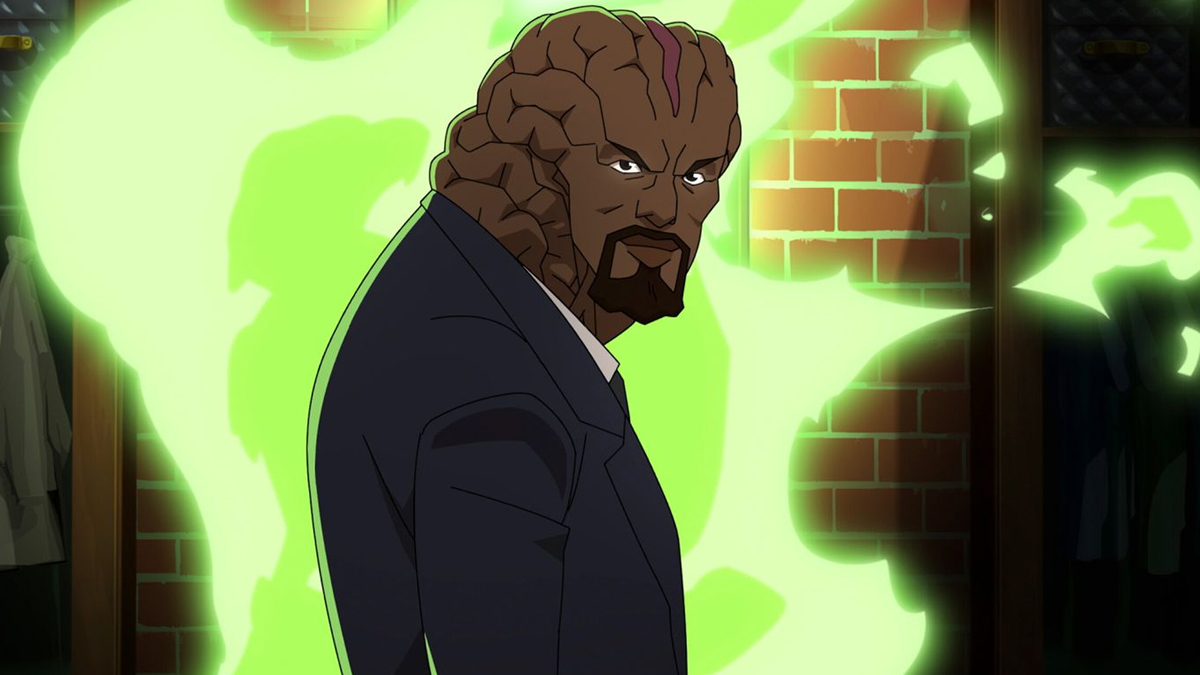INVINCIBLE – SEASON 2. With Great Power Comes Great Responsibility [REVIEW]

We parted ways with Mark Grayson when he was in an enviable position. He had just stopped his father from delivering Earth into the hands of the ruthless Viltrumites. However, his opposition to his father came at a cost— not only Mark’s life but also the lives of thousands of innocent residents of Chicago. The early episodes of the second season of Invincible essentially chronicle the coping with trauma: both individual and collective.
This chronicle resonates most strongly in the side and supporting storylines— if I’m honest, they have been the strength of Robert Kirkman’s series (as showrunner and author of the original comics) from the beginning. They enrich the world and ultimately determine its credibility. Debbie, the main character’s mother, joins a support group for widows and widowers of superheroes. Donald, miraculously resurrected government agency employee, grapples with an existential and identity crisis as he slowly comes to realize that he’s physically closer to being a robot than a human. Atom Eve, on the other hand, tries actively to participate in the city’s reconstruction— however, it turns out she’s more of a hindrance than a help, encroaching on the responsibilities of law enforcement. The path of most characters is bitter and full of unpleasant twists, but it’s precisely these twists that make their journey compelling to watch.

Meanwhile, Mark manages to attend college and tries to lead a “normal” life with Amber. However, as his late Uncle Ben once said, “With great power comes great responsibility.” Mark understands the meaning of those words better than anyone else, even better than Spider-Man, to whom they were originally addressed— his power is incomparably greater than the effects of the mutation that affected Peter Parker. Mark is like a reverse Peter Parker— a resolute teenager burdened with the responsibilities of Superman. He undertakes secret missions in space, works for the U.S. government, and regularly defends the planet against much more serious threats than a mad scientist with mechanical tentacles on his back. The “civilian” life of the hero starts losing its rationale in the second season— his relationship is faltering, and expulsion from college seems inevitable.
Similar to The Boys or Watchmen, Invincible is essentially an anti-superhero series. Yes, it’s about the adventures of flying people in colorful costumes, but it problematizes the issues arising from the existence of this phenomenon. “Who Watches the Watchmen?”— asked Alan Moore mischievously in his most famous comic. The question of supervising superheroes returns like a boomerang in these films and series. In Invincible, Cecil Steadman oversees the caped crusaders— a character of remarkable ambivalence. A gray eminence with the influence and appearance of Cardinal Richelieu, pulling the strings from the backseat of a government position. However, Mark often slips out of his jurisdiction. He’s not entirely human— Viltrumite blood runs through his veins, making him burdened with additional responsibilities. So, when the need arises in one of the episodes, Mark answers Cecil’s call and leaves Earth’s atmosphere. Because Invincible demonstrates above all that being a superhero is an art of choice— between duty and pleasure, following orders and individual sensitivity. If your power determines the fate of the entire planet, you must accept that a quality work-life balance is out of the question.

The deconstruction of superhero conventions in Kirkman’s series is also related to the depiction of violence. Blood flows freely in Invincible, heads explode, intestines spill out, and arms are broken at the elbows. In Marvel films and series aimed at the broadest audience, such scenes would be unthinkable— here, they are commonplace. Animation creates a safe boundary between the viewer and the image; therefore, although violence is explicitly addressed in both cases, brutal scenes are perceived slightly differently in Kirkman’s series than in The Boys, with more tolerance for their direct, naturalistic nature. Nevertheless, Invincible can still shock from time to time. Like when Mark commits his first murder. In self-defense, in a situation of necessity. So what? Hands covered in red blood won’t let him forget, reminding him of the clash where emotions took over, and he lost control of his abilities. The season finale brings the hero closer to the paternal legacy of the Viltrumites, who— devoid of empathy and respect for life— used to kill without batting an eye.
In a period of noticeable decline in Marvel’s quality, production turmoil at DC, and Sony’s cinematic abominations, Invincible appears like a project from another world. Intelligent and imaginative, breathing new life into the ossified format. Even if the second season is slightly worse than the fantastic first season, it still rises high above superhero mediocrity. And it eagerly makes us wait for more.

